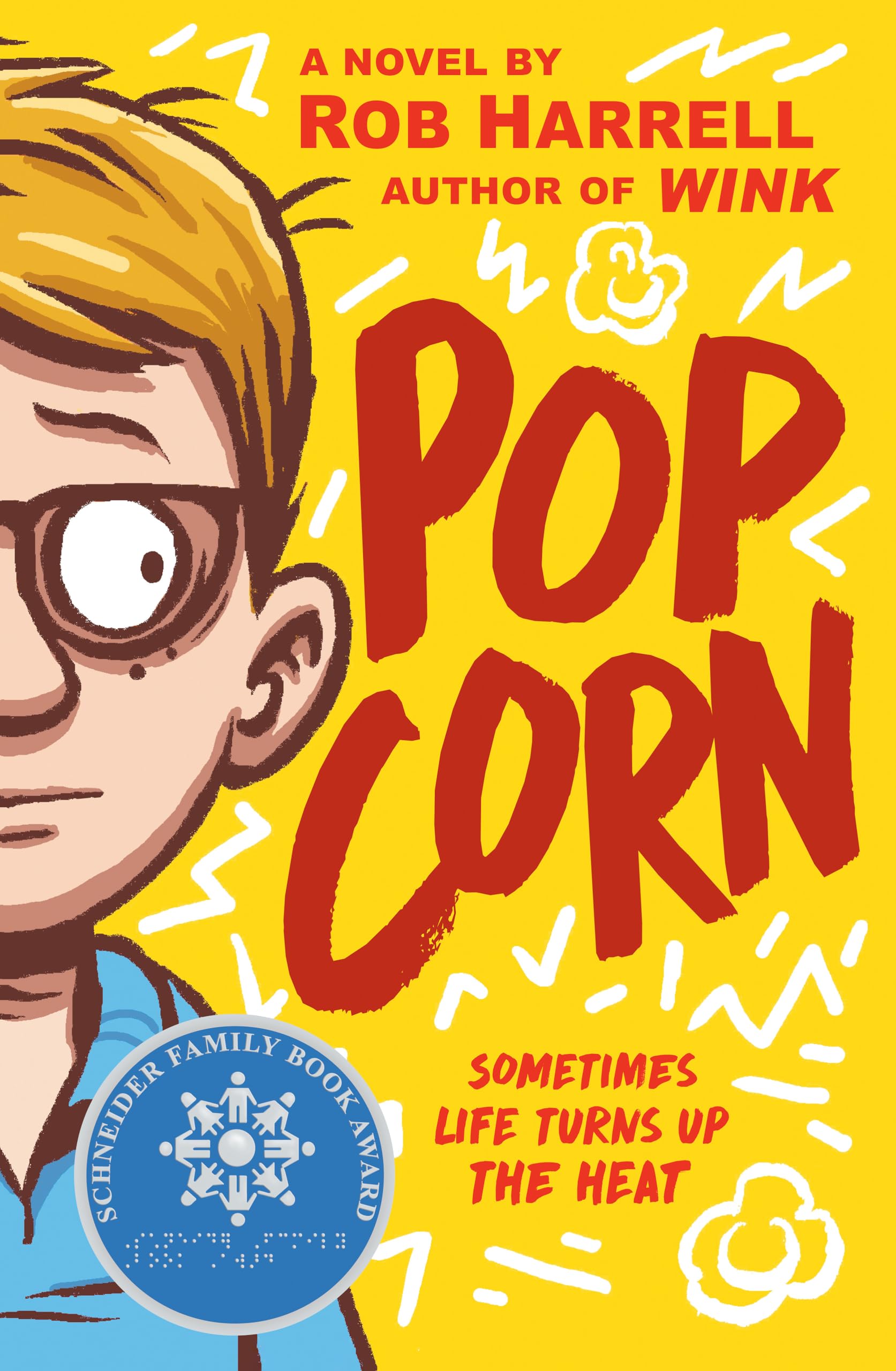Rob Harrell’s “Popcorn” is a middle-grade graphic novel that deftly balances humor and heartfelt storytelling. The story follows Andrew, a seventh grader whose already chaotic school year spirals further when Picture Day collides with a disastrous science experiment mishap and his grandmother’s Alzheimer’s-related disappearance. Through whimsical illustrations and “anxiety file” panels—visual metaphors that liken Andrew’s stress to a popcorn kernel heating up—the narrative explores themes of anxiety, responsibility, and resilience. Andrew’s journey is both relatable and empowering as he learns to navigate overwhelming emotions with support from friends and teachers, all while grappling with the unpredictability of life’s challenges.
“Popcorn’s” hybrid format combining sparse text with expressive spot art reduces reading fatigue and provides visual context for key moments, such as Andrew’s panic during a classroom meltdown or his grandmother’s confusion. The sentence structure is straightforward, favoring punchy dialogue and concise descriptions, while vocabulary remains approachable without sacrificing emotional depth. Harrell’s use of humor, particularly in the exaggerated facial expressions and slapstick scenarios, keeps engagement high, while the “anxiety file” panels serve as gentle entry points for discussions about mental health strategies. Recognized with the Schneider Family Book Award, the book thoughtfully addresses neurodiversity without didacticism, making it a natural fit for read-aloud sessions or small-group discussions. By blending laughter with vulnerability, “Popcorn” doesn’t just entertain, it invites readers to see their own anxieties reflected and reframed, making it a standout addition to classrooms prioritizing social-emotional learning alongside literacy.

